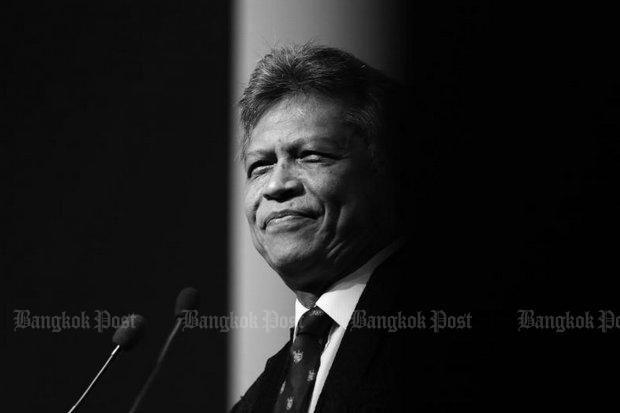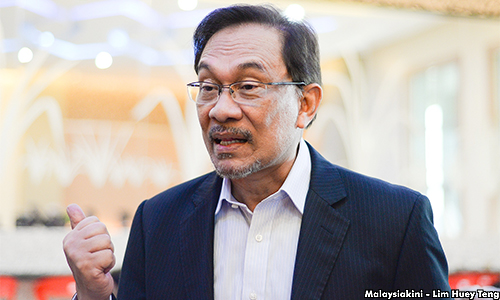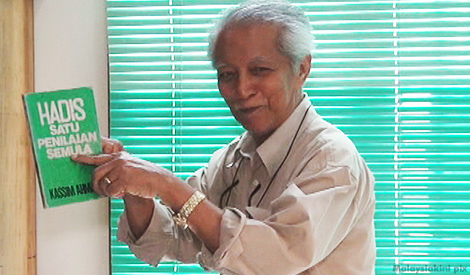December 29, 2018
December 29, 2018
August 19, 2018
by Phar Kim Beng
COMMENT | Not many know that Kofi Annan was from one of the most prestigious tribes of the Ashanti in Ghana. Nor that his forebears were turned into human cargo during the height of the slave trade.
Though history certainly gave him plenty to gripe about, ranging from white privilege to persistent exploitation of his people, Annan’s entire career was marked by grace, dignity and honour, all of which were rare even in the United Nations.
Indeed, how many have not heard of the shadow plays of the UN Security Council among the Permanent Five?
If anything, the members tend to consult privately among themselves even on matters verging on international war and peace – including crunching economic sanctions that are as blunt as they are crude, only to spare the elites that the sanctions were meant to target.
Annan may have left us at the age of 80, an age in Africa where wisdom is privileged over knuckleheaded rhetorical flourishes, but his legacy lives on.
Take the UN Global Compact, one of the most significant initiatives to have emerged from the UN in ages. It carried deep economic imprints.
It urged all multinationals and companies to comply with labour rules and norms derived from the International Labour Organisation, as well as to voluntarily work towards a corporate system of equity and to steer away from sheer profiteering.
Such templates remain important and abiding in the current process of globalisation, where the interest of the workers, investors and shareholders, can all be protected.
Parallel with UN Global Compact, Annan also encouraged the Global Reporting Initiative.(GRI) to make the process of self-disclosure and compliance more voluntary and imbued with more systems of accountability.
All these were undertaken when US unilateralism was all the rage, and when China and Russia were oblivious to the need to conform to the standards of World Trade Organisation (WTO).
Annan, for lack of a better term, was the first to throw the proverbial pebble in the lake of globalisation, creating a system that is not entirely fair, but also not totally indifferent to the plight of the 99 percent.
The 2008 global financial crisis only confirmed what Annan must have privately suspected: unfettered globalisation that would wreak damage on the world.
Indeed, Annan worked with Jeffrey Sachs first at Harvard and then Columbia University, to come up with the Millennium Development Goals (MDGs) – with the aim of eliminating global poverty, as well as empower women and democracy.
In ASEAN, Annan also served as visiting scholar in the National University of Singapore, with the overarching goal to influence countries in the region to choose the right democratic path.
The May 9 strategic electoral upset proved Annan’s prescient vision right, although Myanmar could certainly do more to stem its bloodbath against Rohingya Muslims.

Annan deserves to be called one of the UN’s best secretary-generals – despite the failure to prevent the war against Iraq, where no weapons of destructions were found. But did he always put the right man on the job to contradict the flawed evidence of the great powers that were adamant in their own ways? He did.
On that, Annan deserves the highest salute for transforming the UN Blue Helmets as one of the most respected institutions, despite what happened in Srebrenica and Rwanda.
Malaysia’s Razali Ismail with Kofi Annan and Boutros Boutros- Ghali
Malaysia should salute Annan, and see his legacy as one striving for international peace, where all great and small powers alike agreed to co-exist peacefully.
Rest well, Annan. For you have left the world a better place.
PHAR KIM BENG is a Harvard/Cambridge Commonwealth Fellow, a former Monbusho scholar at the University of Tokyo and visiting scholar at Waseda University.
The views expressed here are those of the author/contributor and do not necessarily represent the views of Malaysiakini.
November 30, 2017

Former Thai Foreign Minister and ASEAN Secretary-General Dr.Surin Pitsuwan died of acute heart attack. He was 68.
Former Foreign Minister and ASEAN Secretary-General Surin Pitsuwan died of an acute heart attack on Thursday. He was 68.
Surin collapsed while preparing to speak at the Thailand Halal Assembly 2017 at Bitec in Bang Na.
He was rushed to Ramkhamhaeng Hospital and later pronounced dead at 3.07p.m.
Surin was born on October 28, 1949 in Muang District, Nakhon Si Thammarat. He graduated from Claremont College in California in Political Science in 1972 and earned a master’s degree from Harvard University.
He entered politics in 1986 as a Democrat Party candidate and won a seat in his hometown in Nakhon Si Thammarat in all contests from 1986 to 2005.
Surin was the Deputy Foreign Minister from 1992-95 and rose to become the Foreign Minister from 1997 to 2001 under the premiership of Chuan Leekpai. He was the first Thai to become the ASEAN Secretary-General during which he served in Jakarta in 2008 for a five-year term before rejoining the Democrat Party.
A former Bangkok Post columnist, Surin was a speaker at the Bangkok Post Forum on November 16 this year. He was expected to run for Bangkok Governor when elections are allowed.
People can pay their last respects at his house on Soi Pitsuwan, tambon Sai Ma, Muang district, Nonthaburi province, from Thursday to Friday at noon. The religious ceremony is held all night.
October 26, 2017
October 14, 2017
Muslim intellectual Kassim Ahmad was a courageous and brave thinker and his passing on October 10, 2017 is a loss for the nation, former Prime Minister Tun Dr Mahathir Mohamad said. Dr Mahathir said he was very sad that his 84-year-old “friend” Kassim had passed away this morning in the Kulim hospital in Kedah. “We lost a brave figure who held on to the principle of his struggle no matter what happened to him,” he said in a statement posted on his blog.–Dr. Mahathir on the Passing of Dr. Kassim Ahmad
by Terence Netto@www.malaysiakini.com
COMMENT | Much of the encomia for Kassim Ahmad, who died at the age of 84 in Kulim yesterday, spoke of his courage in the face of repression of his beliefs.
Kassim exemplified Ernest Hemingway’s definition of courage as grace under pressure. He was serene in facing the waves of hostile reaction to his beliefs – save in one instance.
This was when he blamed Anwar Ibrahim for forestalling the evolution of a debate he wanted with critics of his book, “Hadis: Satu Penilaian Semula” (Hadith: A Re-evaluation).
Kassim had wanted the book, which was banned shortly after its publication in 1986, to evoke a debate on the arguments he had adduced for making the Quran – and not the Hadith – as the principal source of Islamic faith and jurisprudence.
The conventional view was that the sources of Islamic jurisprudence were the Quran, Hadith and the general consensus of Islamic scholars. Kassim had argued that the Hadith contradicting the Quran could not be relied upon as a source of Islamic jurisprudence.

He fingered Anwar (photo), then a Cabinet Minister, as having played the main role behind the scenes to stop any debate on the book from taking place, specifically a debate with the Malaysian Muslim Youth Movement (ABIM). The debate didn’t go ahead. Kassim, ever willing to debate his disputants, blamed Anwar for this.
Anwar was then seen as the go-to Islamist in government, having been ABIM leader from the early 1970s, before mutating from government critic to collaborator in the drive that begun under then prime minister Dr Mahathir Mohamad in 1982 to inject Islam into the administration and governance of the country.
From the perspective of the years gone by, this move is now seen as having paved the way for the weakening of the secular underpinnings of the 1957 Constitution inaugurating the country’s birth – thus opening the way to what many feared would be the eventual Islamisation of the country, which would have been a travesty of what the country’s founders envisaged.
Kassim would remain scurrilous and vituperative on Anwar’s alleged role in foreclosing debate on the banned book.
‘Amenable, amicable and kind’
The venomous streak that was much in evidence whenever Anwar’s name or fate came up in conversations between Kassim and friends who came a-visiting seemed uncharacteristic of the man who was otherwise amenable, amicable and kind.

He had espoused the merits of Hang Jebat as the authentic Malay hero, in contradistinction to Hang Tuah as the archetype, in Malay intellectual discourse in the early 1960s.
He introduced “scientific socialism” to Parti Rakyat Malaysia in the mid-1960s when he took over its reins from founder Ahmad Boestamam, and changed the party’s name to Parti Sosialis Rakyat Malaysia, in conformity with the Marxist view that their ideology was irrefutable science.
Even when he began to abandon scientific socialism for an Islamic worldview while under ISA detention between 1976 and 1981, it was towards “Teori Sosial Moden Islam” (Modern Islamic Social Theory), the name of the treatise he would pen after being freed, and not towards anything nebulous.
Kassim’s was an intellect who craved certainty for its beliefs, where such certainty is elusive. That was probably why he took an oppositional view of the Hadith, with some of its origins in the mists of times long ago.
Whether it was jousting with national literary laureate Shahnon Ahmad on the role of art and literature in Islamic discourse, or with Islamists on the reliability of the Hadith, Kassim evinced the air of the scientific rationalist.
He had the iconoclast’s penchant for challenging orthodoxies, but this yen came with the ideologue’s weakness for certainties.
The French writer Honoré de Balzac knew the type when he observed that “It’s not sufficient to be a man; one must be a system.”
Read more at https://www.malaysiakini.com/columns/397983#Zu1Yr8RvHWv8cqG0.99
September 11, 2017
His Majesty Tuanku Sultan of Kedah Sultan Abdul Halim Mu’adzam Shah (pic above) has passed away today at the age of 90.
Sultan Tuanku Abdul Halim was the only Sultan to serve as the Yang di-Pertuan Agong twice, from 1970 to 1975 and 2011 to 2016. His second tenure ended on December 12 last year.
As loyal subject of His Majesty and a Kedahan, I mourn His Majesty’s passing and wish to extend Dr. Kamsiah Haider’s and my heartfelt condolences to members of the Keadah Royal Family. His Majesty was a kind and compassionate ruler. –Din Merican, Phnom Penh, Cambodia.